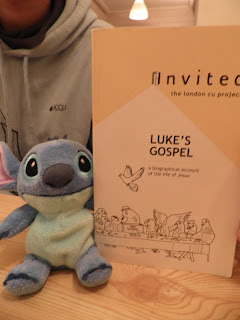 |
| Screenshot from Attila Total War |
"Put your sword back in its place," Jesus said to him, "for all who draw the sword will die by the sword."
-- Matthew 26:52
One of the new criticism I heard of Christianity is that it has not stopped violence. This is especially prominent during the 2022 Russian invasion of Ukraine. After all, both Russians and Ukrainians are mainly Eastern Orthodox Christians, and the Russian Church has endorsed the invasion.
However, this is myopic political and philosophical position. Just because one major church supports the war, it does not mean that Christianity as a whole has never stopped violence. We would not apply the same standards elsewhere. For instance, just because the Imperial Japanese of the 1940s were Buddhist, it does not mean all Buddhism is violent.
Furthermore, prominent church individuals have condemned the invasion of Ukraine. The former Archbishop of Canterbury (Head of the Anglican Church) condemned both Russian Premier Putin and the Russian Church for their actions. The Anglican Church has offered to open discussion with the Russian church with regards to peace.
Let me go back further and show some examples on how the Church as a system attempted to reduce violence in the world.
A) Papal mediation between Chile and Argentina
While I am not a Roman Catholic, I have to recognize the times when Roman Catholic Church has stepped up. In 1983, the Pope mediated a potential conflict between Chile and Argentina (both countries are majority Roman Catholic) and both countries renounced the use of force.
B) Just War theory (Thomas Aquinas)
In Medieval Europe when most nations claimed to be Christian, there were academic attempts to restrict violence. By giving clear criteria, nation states would need to meet a certain standard when waging war.
Thomas Aquinas distilled a Just War to three conditions: the authority of the sovereign, the purpose of the war must be just, and finally the conduct and intent of the involved warriors
C) Inquisition
Unlike popular portrayals on how violent the Inquisition (a church judicial system to root out heresy), the Inquisition was an attempt to reduce violent and rampant accusations of heresy.
In fact the Inquisition is considered to be the first attempt at a universal court system, where evidence is needed for a guilty verdict, and biased testimonies were dismissed. Some historians have even argued that the Inquisition laid the foundation for the modern legal systems of Europe. As a Singaporean, it is interesting to note that Singapore law is based on English Common Law which has parts of its origin in the Inquisition.
Conclusion
While one can claim that the culture of Christianity has led to violence, one must also acknowledge the efforts the church took towards towards peace.
 |
| HMS Hermes in flames, 1943 |
For more reading:
God's Philosophers (2009)









